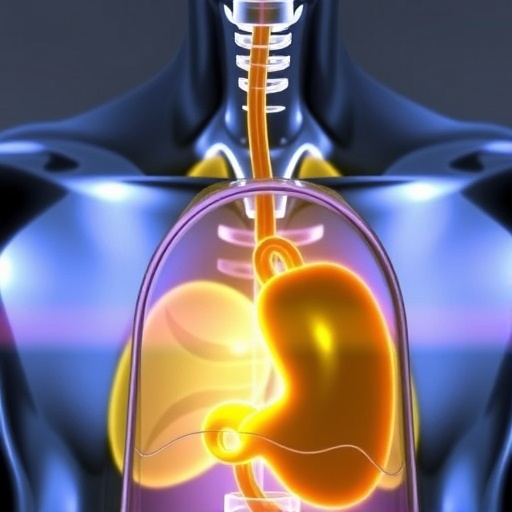The advancement of organ transplantation has been significantly propelled by a groundbreaking achievement at the University of British Columbia (UBC). For the first time in human history, a kidney originally classified as blood type A was successfully converted to the universal blood type O. This extraordinary development utilized specialized enzymes engineered at UBC, designed to address the incompatibility issues that often accompany organ transplants. This new approach holds immense promise for transplant medicine, heralding a new era in which thousands of patients may access kidney transplants more readily.
Kidney transplants remain a critical option for patients suffering from renal failure, but the field has long been hampered by the challenges associated with blood type mismatches. Blood types, determined by the presence of specific antigens on the surface of red blood cells, can lead to hyperacute rejection when an incompatible organ is transplanted. This severe immune response can damage or destroy the organ in a matter of minutes. The universal blood type O has historically been favored for transplants as it does not elicit an immune response in any recipient. However, obtaining suitable type O kidneys has always been a struggle, leading to increased wait times—especially for blood type O patients, who typically endure longer surgery delays.
The novel approach developed by the UBC researchers fundamentally changes the paradigm of organ transplantation. Instead of adjusting the recipient’s immune system through invasive treatments to accept an incompatible organ, their method alters the organ itself. The enzymes, discovered in 2019, can effectively strip away the antigens from type A blood cells, rendering the kidney indistinguishable from that of type O. Dr. Stephen Withers, a professor emeritus at UBC and one of the pioneering researchers of this groundbreaking project, described the enzymes as “molecular scissors” capable of excising the ‘nametag’ that identifies an A-type organ.
The experiments leading to this remarkable accomplishment were conducted under rigorous ethical oversight. A brain-dead patient’s family consented to the use of their loved one’s kidney for research. This allowed researchers to evaluate the human immune response without placing an actual patient’s life at risk. The kidney was transplanted into the deceased, and for two days it functioned without exhibiting any signs of hyperacute rejection. On the third day, some blood-type markers returned; however, the adverse reaction was markedly less severe when compared to traditional rejections. Interestingly, signs of organ tolerance began to emerge, indicating a potential breakthrough in overcoming blood type incompatibility.
The journey toward this success was paved over ten years of cuts, trial, and error. In its early stages, the research team concentrated on the broader goal of creating universal donor blood via the enzymatic stripping of blood type-specific sugars. The unique antigens that coat the blood vessels within organs were identified as root causes of transplant failure in incompatible cases. The ultimate vision for these efforts encompasses not just kidney transplants but also the creation of universal donor blood for transfusions when necessary.
In 2022, a milestone was achieved when researchers successfully demonstrated that lungs could also be converted through similar enzymatic treatments. Collaborative efforts among different institutions established that the enzyme-converted organs were viable for transplantation. However, the pivotal pivot was whether these organs could endure within a human immune system, a question that had technicians and specialists on tenterhooks. The confirmation came at the end of 2023, showcasing efficacy that instilled hope across the medical community.
What’s noteworthy about the UBC enzymes is their efficiency. Dr. Jayachandran Kizhakkedathu explained that these enzymes were designed to be extremely selective and effective even at minimal concentrations. Their groundbreaking capability to modify organ characteristics presents an unprecedented opportunity in the fields of both organ transplantation and transfusion medicine. It effectively removes the traditional hurdles that have limited donor organ availability for patients in critical need.
This extraordinary breakthrough not only spurs hope for patients awaiting transplants but also has broader implications for the healthcare system at large. The potential to transplant kidneys from patients with different blood types can dramatically reduce wait times, and potentially save lives by decreasing the time patients spend on wait lists for compatible organs. Those on the waitlist who are currently vying for the rare type O kidneys may soon have access to a wealth of previously unusable organs if clinical trials confirm the safety and efficacy of this new method.
The UBC team is already setting its sights on gathering regulatory approval that will facilitate clinical trials, marking another pivotal stage in the journey from laboratory findings to real-world applications. Their partner, Avivo Biomedical, a UBC spin-off company, is spearheading the development of these transformative enzymes, showcasing the university’s commitment to translating research into actionable medical care.
In conclusion, the journey from basic scientific inquiry to clinically relevant applications is extraordinarily complex yet rewarding. While there are still hurdles to overcome, including regulatory pathways and comprehensive clinical trials, the future looks promising. The narrative of this monumental achievement exemplifies the dedication of researchers committed to enhancing patient care and transform the landscape of organ transplantation. The intersection of science and human compassion underscores the essence of what drives progress in medicine and the hope that it brings to countless individuals awaiting surgical interventions.
Subject of Research: Kidney transplantation and blood compatibility
Article Title: Enzyme-converted O kidneys allow ABO-incompatible transplantation without hyperacute rejection in a human decedent model
News Publication Date: 3-Oct-2025
Web References: Nature Biomedical Engineering
References: DOI 10.1038/s41551-025-01513-6
Image Credits: None
Keywords
Tags: blood type conversion in organsblood type O kidneys accessibilityfuture of organ transplantationhuman trials for enzyme technologyimmune response in organ transplantationkidney transplant advancementsorgan transplant incompatibility solutionsovercoming blood type mismatchesrenal failure treatment innovationstransplant medicine advancementsUBC enzyme technology breakthroughuniversal donor organs





